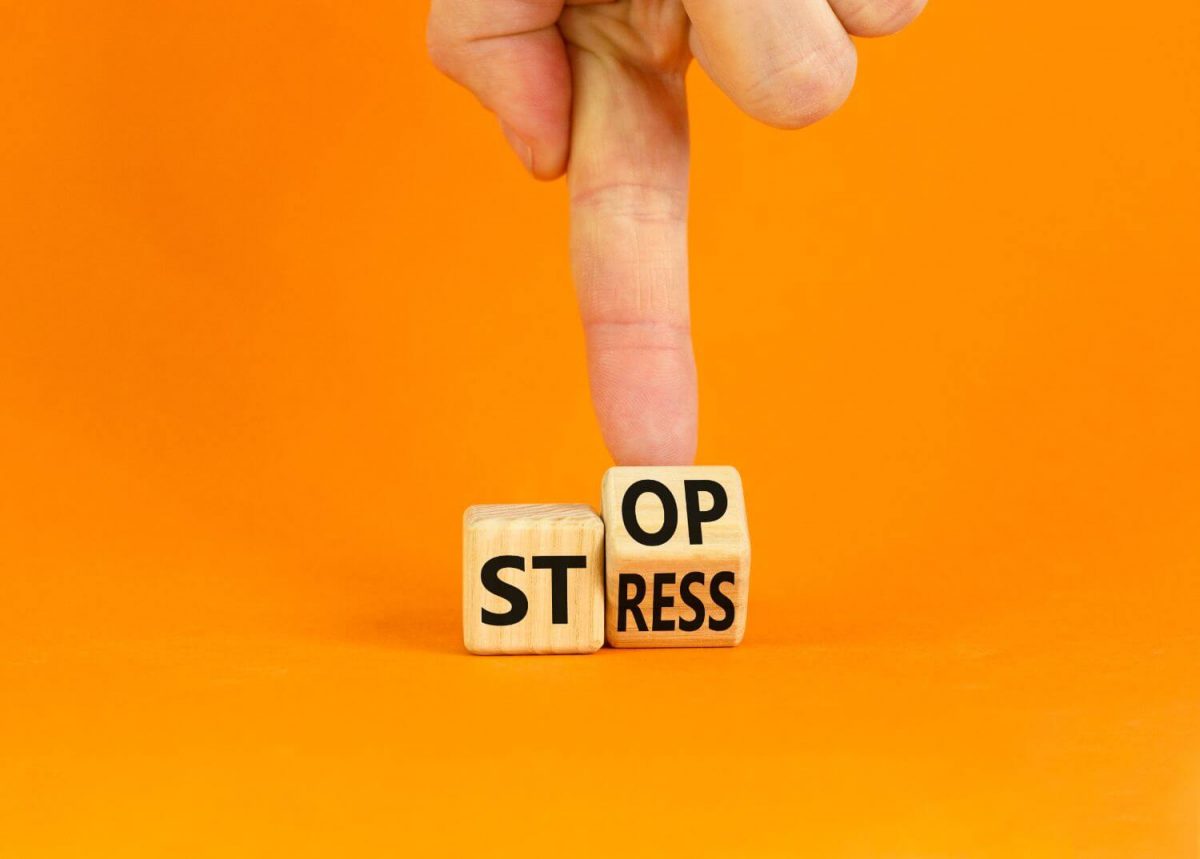Most of us, whenever we hear the word ”stress” automatically conjure up an assortment of negative images and perceptions in our minds.
While it’s true that high levels of stress can be harmful to us, it doesn’t always signify that something terrible is going on in our internal or external worlds.
Stress management
Stress management is the tools, techniques, and strategies that reduce stress and its negative impact on our bodies and minds.
However, the keyword in the above sentence is ”management”; if you can learn to manage your stress effectively, you will be less likely to experience any significant adverse effects.
How to manage stress
You can use various techniques to manage stress -which involves several physical, mental and emotional behavioural strategies.
Essentially, you stand a much better chance at managing stress if you use stress management strategies regularly and in response to challenging events.
Why is stress management so crucial?

In times of stress, our bodies work with us to get us through whatever crisis or stressful event that may have suddenly arisen.
How our bodies deal with stress goes back to primitive times when we had to fight for food or run from or chase away dangerous animals – even today, these survival mechanisms get ingrained within us all.
In modern times, our survival instincts are not all that different – but the cause of our stress has changed monumentally.
The difference between acute stress and chronic stress
Unlike centuries ago – we no longer have to fight predators for food and basic survival; fortunately, these things are a given for most of us.
However, an ongoing chronic kind of stress is going on today, one that wears us down and drains all our energy and resources.
Stress response
Mental health experts often refer to chronic stress as burnout – a condition that has a devastating impact on our psychological and physical health if left untreated.
Fight or flight response
You may have heard of the ”fight or flight response”, which describes how our bodies respond to stress, allowing us to get through profound trauma or a shocking event.
Much like the olden days, our bodies innately respond to stressful external triggers that may get perceived as dangerous or life-threatening.
Imagine how it would feel to be chased by a lion or tiger, and you may get some idea of how our physical bodies react to help us survive such an ordeal.
Stressful situations
In times of stress, you may notice that you feel more energetic or keyed up than usual.
You may also feel as though you can conquer anything during these moments.
When stressful situations arise, a chemical called cortisol is responsible for the sudden burst of adrenaline you may experience, allowing you to fight disease, inflammation, fight predators or get through a traumatic event.
Body and mind
However, when stress becomes chronic, the experience of feeling energised feels more like being permanently ”wired”.
If such a feeling persists in the long-term, you may start to feel physically and mentally exhausted and worn out – at this point; you may need stress detoxification or therapy to help manage stress.
Stress management tips
Fortunately, there are various ways you can manage stress which will vastly improve your quality of life and restore your energy levels.
Some stress management techniques may sound obvious, but it is often apparent that some of the most basic strategies get overlooked.
Reducing stress
The key is to optimise what you are likely already doing, such as eating healthy foods and getting enough sleep and exercise.
Reducing stress begins at a basic level – most of us are not getting enough sleep or exercise and often cultivate bad diets.
Diet
The key to a healthy diet is to fuel all of your body’s systems – restricting your calorie intake or dieting increases HPA activation {5}.
HPA activation improves your chances of survival when faced with significant challenges as it initiates several physiological and behavioural changes that are helpful during a crisis or emotional disturbance.
If you are hoping to reduce stress, you must eat enough nutritious meals to nurture all your body’s systems.
Sleep
Scientists have proven that getting enough sleep comes with many significant health benefits.
Sleeping less than six or seven hours a night can affect your health and overall performance the next day.
Additionally, when you chronically miss out on sleep, it can significantly increase your risk of disease. Scientists recommend sleeping between seven and nine hours every night to avoid becoming burnt out or unwell.
Exercise

Experts recommend low-intensity workouts for those trying to reduce stress – such as walking, swimming or yoga.
High-intensity workouts can increase your cortisol and energy levels which may increase stress.
Relaxation and stress management techniques
While eliminating stress from your life is unrealistic, stress management can be achieved with several techniques and strategies.
Stress management techniques may include:
- Counselling or group therapy
- Time – management skills
- Exercise
- Having a robust social support system
- Cultivating a healthy lifestyle
- Relaxation techniques such as meditation, deep breathing, yoga and breathing exercises
We’re here to help
Let’s talk
Call now for a totally confidential, no-obligation conversation with one of our professionals.
What is the definition of stress?
Researchers describe stress as any chemical, physical, or emotional factor that creates bodily unrest and may contribute to disease (Melissa Conrad Stoppler, MD – Stress Management: How to Manage Stress in Life).
Numerous factors cause chronic stress, including:
- Tension and stress
- Psychological trauma, illnesses, toxins, and physical injuries
What is ”good” stress?
While stress can be bad for us, mild to moderate pressure can sometimes be positive. Scientists define stress as ”a force that impairs the balance and stability of bodily functions”.
If we examine the kind of disruption caused by stress – we may discover a combination of positive and negative factors.
Stress reduction
For example, when you exercise, a degree of stress is put on your body as you work out; however, the benefits to your health weigh out the cons.
Moreover, work-related stress can motivate or compel you to perform at a higher level – stress, in this instance, is the barometer of success.
As a result, you may feel inspired, focused and more energised to do well.
Managing stress versus eliminating stress
It is unrealistic to try and eliminate stress – since, inherently, stress is a part of life.
Stress relief and stress management are attainable goals – but ridding stress from your life is not.
Leaning into your stress during challenging moments, learning when to pick up on physical and emotional cues and adopting relaxation techniques are ways to manage stress.
What is ”good” stress management?

Besides the stress management tips already mentioned, there are other ways to manage stress effectively.
Stress management methods help you capitalise on the association between your body and mind, allowing you to cultivate more positive stress management.
Cold water therapy
Many people who have participated in cold water therapy describe it as ”the sensation of a sedentary life cracking wide open.”
The joy of a full-body-slam-dunk of cold-water swimming is inarguable.
Cold water swimming helps improve:
- Circulation
- The immune system by giving it a boost
- Inflammation in the body by reducing it
- Metabolic function
- Sleep
- Energy levels
Progressive muscle relaxation
Studies show that progressive muscle relaxation reduces cortisol and is a valuable stress management technique.
Progressive muscle relaxation involves tensing your muscles as you inhale and quickly releasing pent-up tension as you exhale.
Such a technique involves working out different muscle groups simultaneously, such as your shoulders, forearms, etc.
Deep breathing exercises
The benefits of deep breathing are limitless.
Breathing exercises switch off the stress response in your body and activate your parasympathetic nervous system.
Deep breathing exercises return you to a calmer emotional state, reducing anxiety and muscle tension and lowering stress levels.
Meditation
Whenever you feel overwhelmed, a profoundly effective stress management technique is meditation.
Meditation is a natural stress stabiliser and can help you manage the body’s stress response in times of adversity.
The benefits of meditation
The benefits of meditation are indisputable; it promotes empathy, cognition, emotional health, and well-being and increases attention by creating a state of flow in the body and mind.
Therapy for stress management

Psychotherapy is an effective treatment for stress – particularly cognitive behavioural therapy (CBT).
CBT is an effective therapy that can help modify negative thought patterns due to stress.
Such therapy helps reduce stress symptoms, allowing you to develop healthy coping mechanisms and manage stress effectively.
Other stress management techniques
Other stress management techniques include:
- Trauma treatment for those with childhood trauma or adverse life experiences
- Substance abuse treatment for those that use unhealthy coping mechanisms such as illicit drugs, alcohol or behavioural addictions like gambling or sex addiction to cope with stress
- Yoga and tai chi help to promote relaxation in the body and mind
- Learning how to manage your time effectively reduces stress and promotes well-being.
- Support from family and friends.
Taking control of your stress
Taking control of your stress may sound much easier said than done – but it is possible.
There are short-term and long-term solutions to managing stress effectively; only you will know what stress management strategies work best for you.
Inherently, stress management looks and feels different to everyone.
If boundary setting, getting enough magnesium or potassium every day, journalling, or ditching caffeine for good is what works for your best friend or sister, that’s excellent.
However, stress management might mean something entirely different for you.
Contact us
If you want to learn more about managing your stress better, please contact a specialist at White River Manor who can help.







